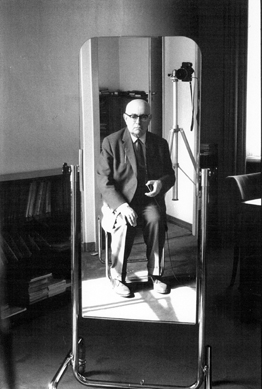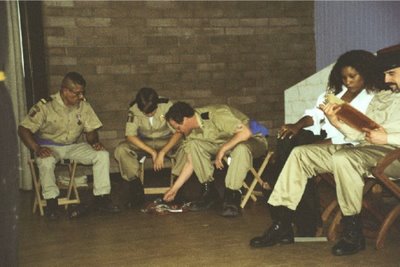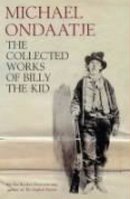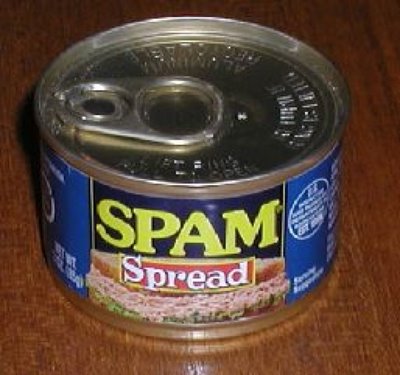Mona Fertig's Moon
Invoking the Moon
Reviewing Mona Fertig’s Selected Poems as a Game of Poker
To write poetry after Auschwitz is barbaric, said Theodore Adorno in 1949.
To put the statement in context, here are a few other memorable events of 1949:
January 11: First recorded snowfall in Los Angeles.
February 22. Grady the Cow, a 1,200-pound cow gets stuck inside a silo on a farm in Yukon, Oklahoma and garners national media attention.
March 4: NATO is formed.
July 29: The Soviet Union tests its first atomic bomb, known as First Lightning or Joe 1, at Semipalatinsk, Kazakhstan.
September 15: The Lone Ranger premiers on ABC
Talk about barbarism!
Is it possible? Dare we hope that there is a way to write lyrically and not be barbaric?
There is good news from Mona Fertig: we dare hope.

Before this, he composed music.
Ok, still. So, it might be a long time since whacky old 1949, but what gets written in Canada, more than anything, and, yeah, what gets read, less than anything?
Poetry!
But then again, Canada has come late to the poetry game. When Mona Fertig was first getting her teeth into the earliest poems in Invoking the Moon, Canada was just testing its oats, poetically, so to speak. Having recently shucked off the British ermine and moved into the embrace of its own North American continence.
So to speak.

to Write the Definitive Book about the American anti-hero Billy the Kid.
In poetry, yet.
Folks, you might laugh, but that’s the Canadian way. This is the perspective one gets living on the edge of an Empire in decline.
We are the barbarians.
Without us, what would the Americans be, really? A bunch of revolutionaries, I suspect.

>Revolutionaries, pick your weapons! Before you do, however, notice that the guy with the poetry book gets the girl. Ain’t that the way.
The thing is, life is often a game of poker.
This should, in fact, be the disclaimer on every book of poetry — especially on every book of selected poems. Mind you, the thing is, if life is a game of poker, the question should also be: is everyone playing the same game?
Yeah, well, that is the question.
News Flash! Just dealt in today here on the plateau is Mona Fertig’s Invoking the Moon. Selected Poems. 1975-1989, from Black Moss Press.
The other players have their shot glasses of whiskey, their illegal handguns at their waists, some with grizzled beards and some with beauty spots and hair in braids, and they’re laying down their bets. Money is slipped out of garters, out of hat bands, out of money clips.
The whole lot of the players look like Billy the Kid wannabes, actually, but, really, they are poets. Uh-huh, that’s right. Poets, declared extinct in five continents, are everywhere. Like starlings. These are the Canadian poets, that’s all, incredible as it sounds. But are they going to tell Mona that they’re poets, too? No, they’re not.

And is she going to tell them that she is? You bet she is!
You think they’re all bluffing? Hell, some of them most probably are. Some of them most probably are about as Canadian as George W. Bush. Some of them are positively about as poetic as Stephen Harper.
But that’s the way the game is played now that it’s no longer possible to openly write poetry.
Now that it’s all made up.
Now that even the New Formalists have to make up the old forms out of the new ones, and getting themselves all steamed up in the process.
Unless you’re Mona. Mona keeps her cool. In this game of mirrors, she knows who she is.

Prime Minister Harper wearing his poetry face.
You know, if you’re not Canadian, or maybe even if you’re the kind of Canadian who forgets it sometimes, you should be careful playing this game, because the rules appear to be the same as the rules played everywhere else in our blue world coughing, but they’re not.
(Just a friendly warning.)
For instance, betting. You think you’re betting here on who’s going to have the winning hand and walk away with all the chips?

Prime Minister Harper without his poetry face.
I admit, it looks a lot like that, but, really, the poem-slingers here are betting on who’s going to get a Canada Council grant, what hot new thing of the week is going to come into town and shoot the place up while they’re having a sestina, who’s going to make the loneliness go away tonight, who’s going to do a Leonard and run away to Greece, and who they’re going to sign on to play their stunt double when they finally sign a contract with a big publisher, like, oh, Mclelland and Stewart or, or, or, hard at work and ever constructive... Black Moss Press.
Well, my name’s Harold Rhenisch. I tend bar here and I’m a poet, too. I mainline the junk, to tell the truth. This little joint out in the desert is my treaty with the world. I’m not exactly shipping the stuff out the door in semi-trailer loads, and I’m not exactly digging a hole for it out in the cactus, either. I’m making peace with obsolescence. That’s what I’m doing. For instance, I’ve posted my stunt double (I call him Adam) at the door and told him to watch out for angels dressed in black suits and with rhyming couplets strung in bandoliers around their shoulders. His girlfriend, Eve, is waiting on tables.

on Their Way to Minimum Wage Food Service Jobs in Canada
Yeah, that is American critic Dana Gioia in the background.
Now, one thing I’ve learned in this business is that a poet needs a stunt double. (If you have to ask Why? you really aren’t from around here, are you?) Here, I’ll whisper you the answer: because poets cheat. And they don’t always play by the rules.

approved for export to the United States.
(This is when Eve whispers in sisterly solidarity (and, oh, we’ve been waiting for it):
Eve: Mona, darling. Are you saying that the way to play poetry poker after Auschwitz is to cheat?)
Well, there you go. Mona’s not going to answer, because, after all, she’s in the game, isn’t she. It’s not for her to say that Paul Celan killed himself because it was the natural consequence of continuing to write poetry after his parents were murdered in the camps. It’s not for her to say that the poor bastard wrote in German, the language of the men who murdered them. Or that it was the most civilized and most brutalized language in the world. Or that to write was to be damned to knowledge and complicit in your own imprisonment.

A common fate of poets in this age (and another reason for having a stunt double).
But that was the philosophy of writing that was in the air when Mona started publishing poetry back in 1975. The world was divided by an iron curtain. One half of the world was getting ready to have a shower. The other half was shivering naked in a shower cubicle, without water, a towel, or soap.

Note the bountiful numbers of cold shower attendants, but the general lack of clientele.
Nobody was really satisfied with this arrangement.
As a result, in his later poems, Celan wrote only those parts of the European lyrical poem which were not the European lyrical poem.
It was like playing Schubert’s Trout Quintet, without the trout.
Or the Quintet.
You know: the trees on the bank of the stream, but not the stream, the fly on the end of the line, but not the line, the satellites flying among the stars above, like mayflies, but neither mayflies nor stars, and words singing a woman, but no woman singing a song, leaning against a piano on a terrace in the moonlight, the consequence of ten thousand poems and songs of roses and moons and love written in the whole history of Mitteleuropa...

or The Trout Quintet Without the Trout
Sigourney Weaver and Ben Kingsley in the film version of Schubert’s Death and the Maiden
Lyricism? It was left to the spam artists. Witness (oh, just a slice of Spam haiku):
Split the Spam atom
Enormous pink mushroom cloud
World covered in pork.Tom Elliot
Which all leaves a lot of room for Mona and her poems of birth and "the ring of fire," should she want to take it, should she be able to pull off the correspondence between the tides of women and the sea, the birth of generations of women from women, out of those cycles, the setting of words down on the page, and the sharing of them with others.
But first, business.
Eve: I need four bottles of Villanelle 2005 for table four. Those Montreal poets are really nuzzling the Villanelle tonight. They’re sloshing it around like it was sonnet water! (Whispers. I’m hoping for a big tip.
So, I busy myself dusting off bottles and uncorking them and sliding them over to Eve, and say:
As for the moon, the Nazis have a base up there, don’t you know. When Aldrin landed? They had a big reception, with stolen Russian goblets.
Eve stares at me incredulously as she loads up her tray.
Eve: Aldrin?
Yeah, Aldrin.
Eve: Faked?
Yeah, Kubrick.
Adam: Honey, we came across his set out in the desert, remember?

A set in the desert?
Eve: (Smiles.) Oh, yeah. Thanks, honey! (Earnestly, with a slight frown.) And that’s why Mona is cheating?
You tell me. Here is Mona’s play. She leads with "The Archer," a lean little hard-edged cupid outfit, clean cut like something worn by Lieutenant Ohura on Star Trek, a little bit of

Writing a poem while wearing a designer space helmet
ain’t the easiest thing!
I mean, look at it:
dream deep / thorn sharp
wound red / love red
wings of kings
so fate spaced
so time tipped
All edges, isn’t it. All the fragments from a fragmentation grenade, without the boom. All a little bit of oh, here’s another Pat Lowther, that’s ok, then, whew, harmless, we know this territory.
Because you had to think about being recognizable as a poet back then. You really did.
Because you could be blown back to the stone age at any moment. You really could.
Because we were at war with the cold. We really were.
You see, nobody had Margaret Atwood as a stunt double yet.

You see, Margaret Atwood was still doing her own stunts way back then.
You see, Mona is stilldoing her own stunts.
You see, that was the year Pat Lowther was killed by her husband (You got it, another poet.) with a hammer.
You see, Pat Lowther didn’t have a stunt double.
Because we’ve been missing her ever since.
Because: is it possible to write poetry after Pat Lowther?
Those were revolutionary times. Mona wasn’t the only one playing the game of writing poems as if they were cipher codes to be smuggled across the Iron Curtain by John le Carré. Look at what Linda Rogers, another West Coast poet, made of it, back then when Canlit looked like it was going to put Spam right out of the sandwich meat market.

Spread the word! For instructions on how to build your own moon rocket, go here.
Ah, those were the days.
Did you actually click on Donkey O.D. above? Here’s a teaser:
It must also be remembered here that Finland probably has FinLit, and Turkey probably has TurkLit, and that Canada isn’t at all unique in having CanLit. It’s just newer to the game.
To put Mona’s poem in context, here’s a piece from Linda Rogers’ "Some Flowers," also written in those last days of poetry, before Adorno’s bitterness turned all poets inward, to silence:
Bury her shadow.
The stain
jumps out of purdah to spit
ink in the funeral
fire, casts the sundrag
moon into new
orbit.Linda Rogers
Another piece in intellectual purdah!

And, as you can see...
fire, casts the sundrag
moon into new
orbit.
... another moon. Tricksy.
In kind of the reverse process, I once did an experiment with a Celan poem, in which I translated the poem not word for word, but by rebuilding the lyrical poem that Celan had merely outlined with tricks of shadow and light, by building negative space.
Kind of like this:

Notice the lines. Poetry is big on lines. Big on scanning, too!
The result was a lot like the later poems in Mona’s Invoking the Moon. A lot like the following one, in which Mona calls the bets in around the table and asks everyone to show their hands, and in which she reveals that she’s holding a royal flush:
Her hands untie unknot themselves legs twist free
and the cords become velvet ribbons invisible manacles
blue sails ashes and cages failing behind. Messages
beat in her breasts. Sprout small as fiddleheads at her
ankles her shoulderblades. Flashes of light mouthfuls
of water pouring forth an undeniable new sound breathing
in and out. Flight p. 63.
It’s an undeniable new sound, alright. A woman is becoming the earth. With poetry buried in the mass graves of the camps, there seemed only one way out: to go earlier than even poetry — to go for magic.
(With a child tugging at the hem of her skirts.)

(With poker chip.)
Does everyone around the table throw down their hands, though? No, they do not. They throw some more Ann Carsons into the pot, some even the Purdys off their backs, the old timers even their very last Patrick Lane first editions, and raise the stakes.
Does Mona fold? Does she smile, like her namesake?

Just Back from a Holiday in Mona Fertig’s Sex, Death and Travel
and Now On Holiday on the Baltic Coast, Sigh
Not in the least. This is poker, and Mona is going to see it out to the finish. To keep others in the game, this is what she throws into the pot, a little bit of Gently Invoking the Moon:
I need partial shade and waterwaterPage 87
for you moon
are falling from your starry world
into my pelvic cradle
the holding place
where I rock you walk you
and long to pass over to the other side
joining the mothers
through the ring of fire.
All the men around the table fold. They know when they’re beat.

In the 14 year span of this slight book, Mona Fertig replaced poetry with herself, and discovered community there, "three millions years of genetics" staring her in the face, and found that for all that time women had been thinking they were facing the future alone, when, in fact, they were not alone at all.
But no more. Now they know better.
No small feat.
Invoking the Moon is a record of Mona Fertig’s journey.
And a system of spells for making it ours.
And, yes, don’t worry: in the book’s concluding lines, Mona Fertig finally lays her cards on the table and addresses women who might still be toying with strapping on the bandoliers of poetry and marching in clipped ranks with a red star on the epaulets of their green uniform jackets:
Mona Fertig

Source.
"Live your spirit, or talk around it," said Robin Skelton once. "Blake lived it. Wordsworth talked about it."
Mona Fertig lives it.
And the moon is born on earth.
Next time, Hitch by Matthew Holmes.
